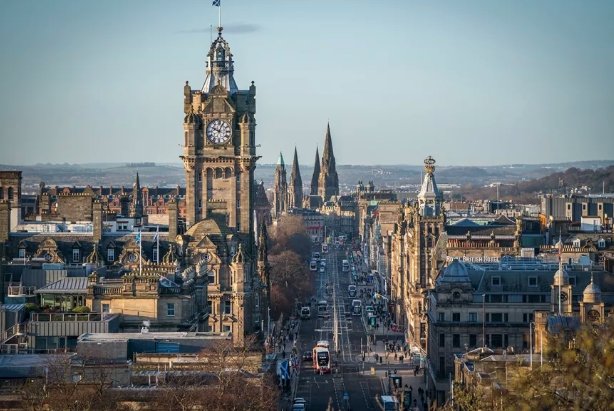With a 2027 rollout, Scotland aligns with France, Japan, Thailand, and others by embracing tourist taxes to protect local services and share tourism’s cost with travellers.
Scotland is officially stepping into the global spotlight on travel policy—not by launching a new campaign, but by asking tourists to chip in.
A new tourist levy, roughly £4.83 per hotel night, is set to take effect in January 2027. It’s Scotland’s biggest move yet to balance economic benefits from tourism with the swelling strain it puts on city infrastructure, public spaces, and local communities.
And it’s not going it alone. From Bangkok to Barcelona, cities and countries are finding that the answer to overtourism isn’t to slow visitors—but to make their stays more accountable.
Visitor Levy: Not Just a Fee, But a Statement
Approved by the Scottish Parliament under the 2023 Visitor Levy (Scotland) Act, the new tax isn’t a flat UK-wide policy. It gives local councils power to decide whether to introduce the charge and how to apply it. Edinburgh jumped in first, passing the policy in 2024. Glasgow soon followed.
What it means practically: visitors staying in hotels, guesthouses, and Airbnbs will see an added line on their bill. A 5% tax on accommodation, which averages to £4.83 per night.
That may not sound like much—but across hundreds of thousands of nights booked each year, it adds up fast.
Short paragraph here.

The Case for Taxing Tourists: Cities Under Pressure
Scotland’s decision mirrors what’s already standard practice across much of the world.
Let’s break that down.
-
France adds a nightly charge that varies by accommodation type—up to €4 in Paris.
-
Japan imposes a departure tax of ¥1,000 on international passengers.
-
Italy charges up to €7 per night in cities like Rome and Venice.
-
Barbados adds a 2.5% levy to hotel bills, plus a flat “room rate” fee.
-
Thailand is rolling out a 300 baht (~£6.50) tourism fee for international arrivals.
-
The United States and Canada routinely collect local occupancy taxes, often 10% or higher.
Here’s a quick glance at how Scotland compares:
| Country | Type of Tax | Avg. Cost Per Night | Start Year |
|---|---|---|---|
| Scotland | 5% visitor levy | £4.83 | 2027 |
| France (Paris) | Fixed fee | €0.20 – €4.00 | Existing |
| Japan | Departure tax | ¥1,000 (~£5.00) | 2019 |
| Italy (Rome) | Fixed fee | €3.00 – €7.00 | Existing |
| Thailand | Entry tax | ฿300 (~£6.50) | 2024 |
Across the board, the pattern’s clear. Tourism brings money, yes. But it also brings traffic, litter, inflated prices, stressed public services, and angry locals.
Edinburgh and Glasgow Set the Tone for Others to Follow
Edinburgh made history in early 2024 when it became the first UK city to formally adopt a tourist tax. It didn’t come quietly.
Hospitality groups had questions. Would it hurt bookings? Would Airbnb listings be taxed too? Would the revenue actually reach local projects?
The city stuck to its guns. Officials promised the funds would go directly into tourism infrastructure—cleaner streets, improved signage, expanded maintenance for landmarks like Calton Hill and the Royal Mile.
Glasgow came next, using similar logic: if visitors use the city, they should help fund it.
It’s now expected that Inverness, St Andrews, Aberdeen, and the Isle of Skye will join before the 2027 start date.
Who Pays, and Who Benefits?
Under the law, it’s tourists who pay the fee—but locals who benefit.
The money goes to councils, not national government, and must be used locally. That means better trash collection during festivals. Quieter parks. More support for cultural landmarks. Maybe even more public toilets.
The hospitality industry had its doubts early on. But attitudes are shifting.
“Most guests won’t blink at a few pounds a night,” says Emma Carruthers, who runs a B&B in Perthshire. “But they will notice cleaner trails, safer roads, and less crowding. It’s worth it.”
One-liner here.
A Small Charge, But Big Symbolism
This isn’t just a fee—it’s a philosophical pivot.
For decades, tourism policy worldwide focused on volume: more planes, more hotels, more festivals, more visitors. But COVID, followed by explosive post-pandemic travel, changed that.
Now the focus is shifting to sustainability, fairness, and quality of experience—for locals and tourists alike.
Scotland’s move reflects a broader shift toward “visitor responsibility.”
Instead of free rides, cities want fairness.
Instead of crowd chaos, they want control.
What’s Next? Watch the Countryside
While cities have dominated the tourist tax rollout, rural and island communities may be where the real impact happens.
Skye, for instance, sees over 650,000 visitors a year—ten times its population. Roads get clogged. Trails wear down. Bins overflow.
A modest fee could transform that experience.
And if Scotland gets it right, it might set a blueprint for Wales, Northern Ireland—or even England—to follow.


















